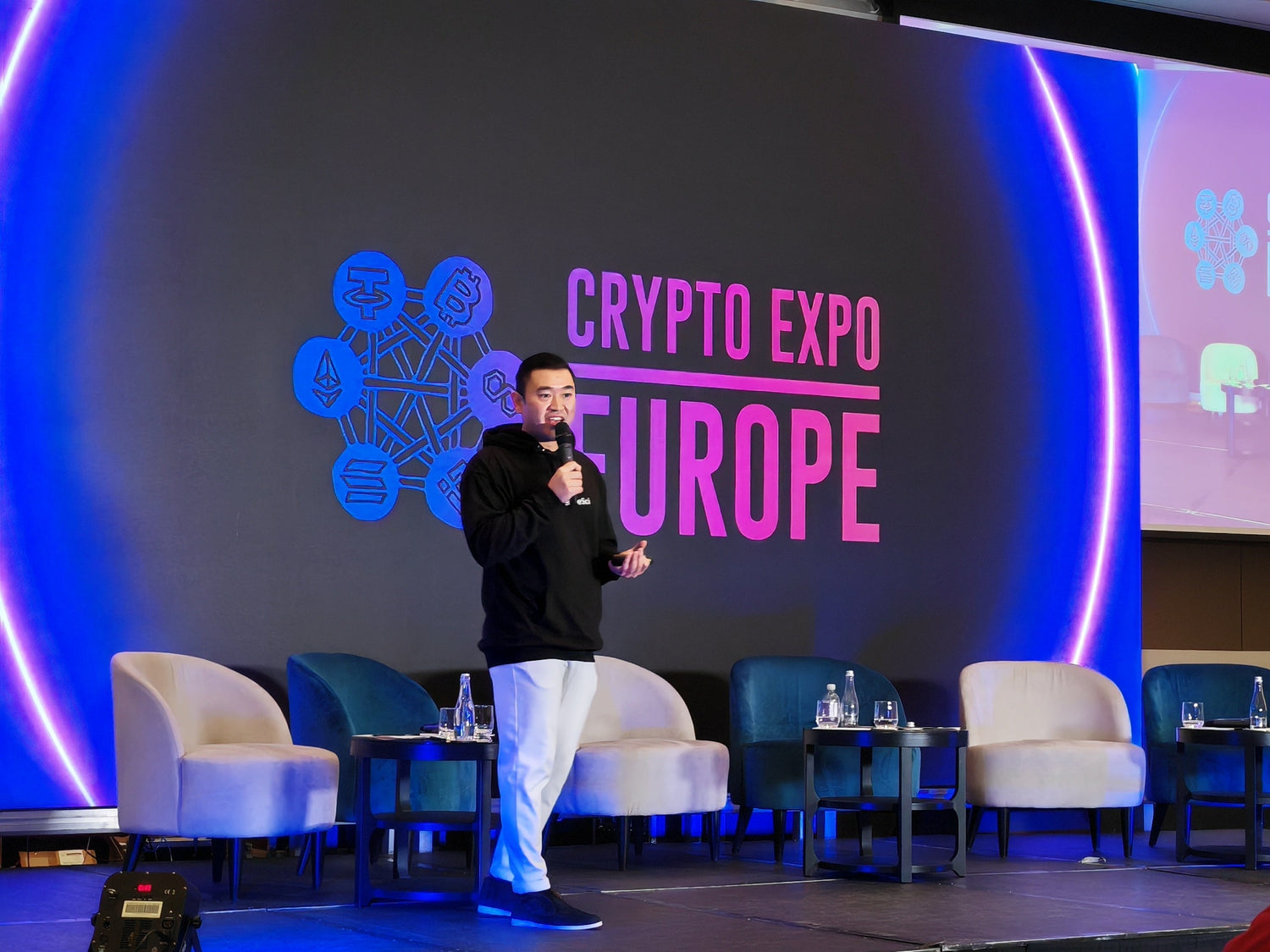
OpenDeSci: Is This decentralised science the Next Big Thing for Science? 🧪⛓️
OpenDeSci: Is This Blockchain Movement the Next Big Thing for Science? 🧪⛓️
At CryptoExpoEurope 2025 in Bucharest, David Wang, founder of the OpenDeSci Foundation, took the stage to unveil what he calls "The Blockchain Movement That Could Unlock the New Scientific Revolution." With bold claims and a vision as ambitious as they come, Wang positioned OpenDeSci as more than just another blockchain project—it’s a movement aimed at democratizing science, fostering collaboration, and disrupting a $2.75 trillion global R&D market. But is this the real deal, or just another "meme with a science theme"? Let’s break it down.
What Is OpenDeSci?
OpenDeSci describes itself as a decentralized platform leveraging blockchain technology to tackle some of the biggest pain points in scientific research today. These include:
- Funding Barriers: Scientists often struggle to secure funding without navigating bureaucratic red tape or launching their own token ecosystems (a daunting task for most researchers). OpenDeSci simplifies this by allowing scientists to upload projects directly onto the platform, bypassing traditional gatekeepers.
- Siloed Research: Collaboration across disciplines remains a challenge due to fragmented systems and institutional silos. Enter OpenDeSci’s AI Research Matchmaker, which connects scientists working on similar problems—potentially sparking groundbreaking partnerships.
- Data Tokenization: A marketplace where researchers can tokenize and monetize their datasets while retaining control over how they’re used. This could incentivize data sharing and accelerate innovation by enabling others to build upon existing work.
- Smart Peer Review: Traditional peer review processes are notoriously slow and opaque. OpenDeSci proposes an incentivized system that rewards reviewers for quality feedback, aiming to improve both speed and transparency.
- Anonymous Feedback: Modeled after Reddit, this feature allows users to provide unbiased critiques of research papers—a nod to the importance of constructive criticism in advancing science.
These features sound promising, but will they translate into real-world impact? Or are we looking at yet another case of “blockchain buzzword bingo”?
The Bigger Picture: Decentralized Science (DeSci)
Wang didn’t shy away from making big projections during his keynote. He drew parallels between DeSci and the explosive growth of decentralized finance (DeFi), predicting that the sector could grow from $1.2 billion in 2025 to $77 billion by 2035. If accurate, these numbers suggest massive untapped potential in using blockchain to reshape how science operates.
But here’s the catch: Wang himself warned about the risks lurking in the DeSci space. Many projects, he noted, are little more than marketing gimmicks dressed up as science initiatives. The recent crash of Viya Protocol—a DeSci project that wiped out 90% of investor funds—is a stark reminder of the dangers of hype over substance.
So, where does OpenDeSci stand in all this? While Wang emphasized the need for tangible products and real-world utility, skepticism remains warranted. After all, even the best ideas require execution—and the history of crypto is littered with ambitious projects that failed to deliver.
Making Science Accessible to Everyone
One of the most intriguing aspects of OpenDeSci is its focus on accessibility. Wang envisions a future where scientific knowledge isn’t locked behind paywalls or jargon-heavy journals but is instead available to anyone with an internet connection. To achieve this, the team is developing an AI agent designed to curate high-quality educational content, inspired by the viral success of Bitcoin’s whitepaper—a document that made complex ideas accessible to a global audience.
This push for inclusivity is commendable, especially given the growing demand for open science. However, questions remain: How will OpenDeSci ensure the accuracy and credibility of the content it promotes? And can an AI-driven approach truly capture the nuance and rigor required in scientific communication?
The Team Behind the Vision
Wang closed his presentation by acknowledging the contributions of his core team, including Dr. Alexander Barber, Professor Roger Christian, and CTO Neil. He highlighted the importance of maintaining a small, agile team to enable rapid execution—a strategy that has proven effective in other tech startups.
While having experts in both science and blockchain is undoubtedly a plus, the ultimate test will be whether this team can navigate the unique challenges of merging two vastly different fields. Building trust within the scientific community won’t be easy, particularly when skepticism toward blockchain runs high among traditional academics.
Final Thoughts: Something’s Cooking, But Is It Worth the Hype?
OpenDeSci certainly checks many boxes for a revolutionary idea: addressing systemic issues in science, leveraging cutting-edge technology, and aiming for broad societal impact. Yet, as with any emerging movement, caution is key. The DeSci space is still in its infancy, and separating signal from noise will take time.
As Wang aptly put it, “Something’s cooking” in the DeSci world—and OpenDeSci appears to be leading the charge. Whether it can live up to its lofty promises remains to be seen. For now, we’ll keep our eyes peeled and our wallets zipped until there’s concrete evidence of progress.

